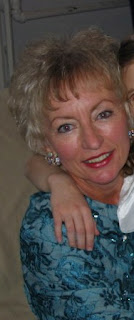There are multiple versions of my experience to prom. This is one of them, produced with honesty and some necessary gaps.
I must have received a hundred text messages the day of prom. Majority of them revolved around feelings of excitement and nervousness. While others were rsvp's and confirmations of the night’s plans. I know alot of people's preparation plans. Most started with the aspect of hair because that tends to be the most time consuming and rigorous. My day began with waking up early and going to school. Yes it would have been nice to get the extra sleep in preparation for prom, but I personally did not need all day to get ready for the event. It was closer to around 4 when I went to get my hair done. My mom had made an appointment for me to get it done. This was her way of playing a part in the prom process. Not being there physically took a toll on her and she wanted badly to be a part of my experience in some way. It seems as though most mothers willingly become a big part of prom preparations. Because she was not there my dad chose to come. While he sat in the living room my sister helped me get ready. The wall between those gender roles was broken as I had my "big anticipated entrance." I was greeted by my date with some flowers while being wooed by family members. Way before prom I established that I did not want or need any flowers. My date and I approached prom very causally. I was in no way expected flowers, and was a littler turned off by the whole “make an entrance” shenanigans. If anything I tried to go against the whole dominant practices of prom. Even then I feel as though I failed. I got the flowers, I had the dress, and my hair was done. The entrance I made was into the whole ordeal of what prom is.
I’ll admit it right here that yes we did take a limo to prom as well. The limo ride was EXACTLY as stereotyped. We showed up to prom fashionably late, to yet again make our “entrance.” There was food. Yes we danced. Of course there were pictures taken. And yes people who you would never expect to dress up did get dolled up. After the first party there was in fact a second one. And for some even a third one. Between each there was a transformation. Even for me, the girl who doesn’t “believed in prom” was found going along, from the glamorous prom dress to the revealing party dress.
It was a typical prom. And I was a typical participate. I found my biggest transformation the day of prom. Long before the event I just really did not care. Closer to the day my attitude shifted to caring a lot about not caring. I wanted so badly not to care about prom I started a fight against getting involved. And the day of the event I lost that battle. The influence of the event is hard to overcome. So difficult to the point where I ended up with the very typical experience. Surprisingly I am ok with it. I like the classic awkward, and posed pictures. I enjoyed the limo rides and the dancing. A stereotyped, typical experience I was in the end very glad to be a part of.



